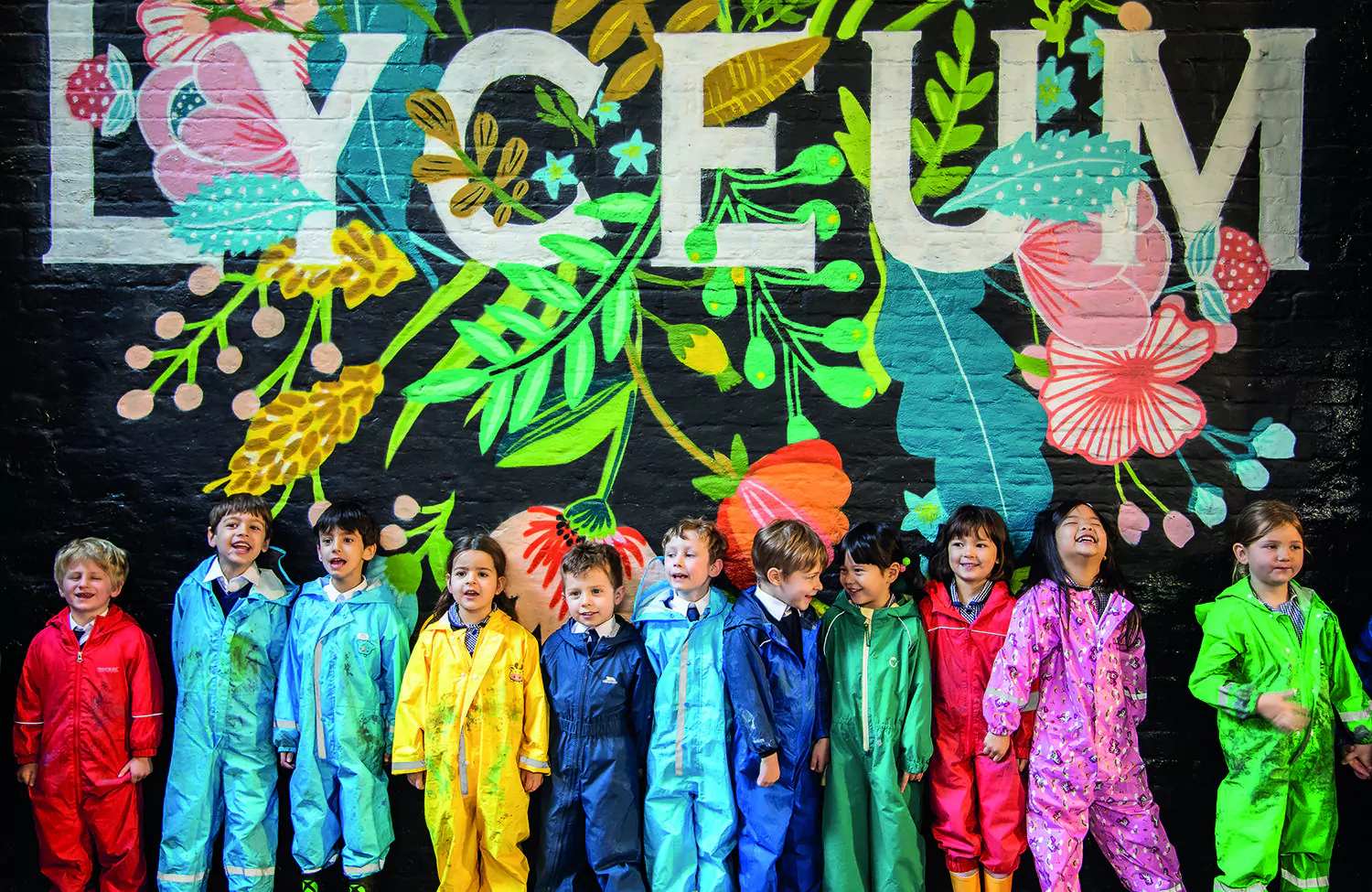At The Lyceum School, homework is given to pupils from Reception onwards. Teachers work collaboratively with parents to ensure the appropriate amount of homework is given. This allows children to develop good time management skills and structure their home learning. The type and volume of work set is age-appropriate and increases as your child moves through the school. Tasks may include learning phonic sounds, spellings, reading, Maths or a creative independent project. Homework can include paper-based or online activities.
Assessment
KS1
In KS1, a combination of formative and summative assessments, aligned with the National Primary Curriculum, are utilised to monitor and enhance children’s academic progress. An outline of these assessments is shown below:
English
Writing
KS1 students undertake a ‘long write’ during each unit of writing. Teachers assess children’s writing throughout the unit to evaluate progress and comprehension, and regularly provide children with a ‘star’ (highlighting a successful skill) and a ‘wish’ (indicating an area for improvement or a target) in line with the school’s marking policy. Writing is formally assessed each term with a ‘Little Authors’ assessment; this enables pupils to show their age-related writing skills in a variety of contexts.
Reading
Each week, KS1 children read with an adult during Phonics and Reading lessons, serving as both a routine reading assessment and an opportunity for feedback. This feedback is communicated verbally to the child. Additionally, a phonics assessment is conducted at the end of Year 1 to determine the percentage of phonics sounds the children can recognise and read and allows teachers to communicate next steps with parents. Reading is formally assessed twice per year through our online assessment platform. These assessments, alongside ongoing teacher observations, help to ensure that each child receives the appropriate level of challenge and support to develop as a confident, fluent reader.
Spelling
Spelling lessons are an integral part of our curriculum, supported by the EdShed platform. Each week, children engage in focused spelling lessons to develop their understanding of spelling patterns and rules. To reinforce their learning, they access EdShed at home, where they can consolidate their knowledge through interactive games and practise exercises. This approach ensures that spelling is both engaging and effective, helping children to build confidence in their abilities.
Maths
In KS1, we use the White Rose scheme as the foundation for our maths curriculum, with end-of-unit topic tests to assess understanding. This is supported by a range of additional problem-solving challenges and activities designed to stretch and deepen students’ knowledge. Assessment is provided both verbally and through written feedback, ensuring that children receive targeted support to develop their mathematical reasoning and fluency.
KS2
In KS2, a combination of formative and summative assessments, aligned with the National Primary Curriculum, are utilized to track and enhance academic progression.
English
Writing
In KS2, children complete a variety of writing pieces throughout the term, using a range of writing styles linked to their topic and National Curriculum expectations. These pieces may be typed or handwritten, depending on the task. Writing is developed through a series of lessons that build key skills, allowing students to explore specific techniques and apply them to their final pieces. Over time, children refine their ability to structure their writing effectively, enhance their vocabulary, and adapt their tone and style to suit different purposes and audiences.
Throughout the writing process, emphasis is placed on developing creativity, grammatical accuracy, and clarity of expression. Children are encouraged to use ambitious vocabulary and a variety of sentence structures to make their writing engaging and precise. They also learn how to plan, draft, and edit their work, fostering independence in their writing.
By engaging in peer and self-assessment activities, students reflect on their work, identify areas for improvement, and learn from each other. These strategies help them develop a deeper understanding of the writing process, enabling them to apply their skills confidently across different subjects and real-world contexts.
Writing is formally assessed each term with a ‘Little Authors’ assessment; this enables pupils to show their age-related writing skills in a variety of contexts.
Reading
In KS2, students take part in whole class reading sessions each week, which include guided reading, comprehension activities, and the development of a variety of reading skills. These sessions focus on exploring texts in depth, discussing key themes, and analysing the author’s techniques, such as inference, language choices, and structure. Children are encouraged to engage in meaningful discussions about what they read, developing their ability to interpret and evaluate texts critically. They also practise key comprehension strategies, such as summarising, predicting, and retrieving information, to enhance their understanding.
Reading is formally assessed termly through comprehension papers and assessments that track progress in key reading skills. These assessments, alongside ongoing teacher observations, help to ensure that each child receives the appropriate level of challenge and support to develop as a confident, fluent reader.
Spelling
In KS2. spelling lessons continue to be integral part of our curriculum and the same practises outlined above are followed. As with reading, a formal assessment of the children’s ability to spell is conducted termly.
Maths
In KS2, the White Rose Maths scheme is used as the foundation for maths learning. This is supported by a variety of problem-solving challenges and activities designed to stretch and deepen students’ understanding. Each lesson builds on fluency, reasoning, and problem-solving skills, helping children apply their mathematical knowledge in different contexts.
Assessment is ongoing, with feedback provided both verbally and through written comments. At the end of each unit, students complete a White Rose end-of-topic test to assess their understanding. Additionally, arithmetic skills are regularly assessed through termly arithmetic tests, ensuring fluency in key mathematical operations.
Math is formally assessed termly, covering arithmetic, reasoning, and problem-solving skills to track progress and identify areas for development. To reinforce multiplication skills, students practise times tables regularly using Times Tables Rock Stars, which helps to build speed and accuracy in recall. This comprehensive approach ensures that all children develop confidence and proficiency in Maths.
Additionally, students in KS2 are introduced to Verbal and Non-Verbal Reasoning from Year 3 onwards. The ‘Planet Bofa’ software is utilised, providing tailored teaching and practice questions in Maths, English, and Reasoning. This platform generates reports detailing each pupil’s strengths and weaknesses, allowing for a customised programme of study.
Alongside Planet Bofa, ATOM is also used to set targeted practice in these areas. ATOM provides adaptive learning opportunities and personalised tasks to support students’ development in Verbal and Non-Verbal Reasoning, Maths, and English. This is incorporated into both lessons and homework, ensuring that students receive consistent practice and reinforcement of key skills.
Overall, The Lyceum School employs a comprehensive approach to homework and assessment, ensuring that each child’s academic progress is closely monitored.





